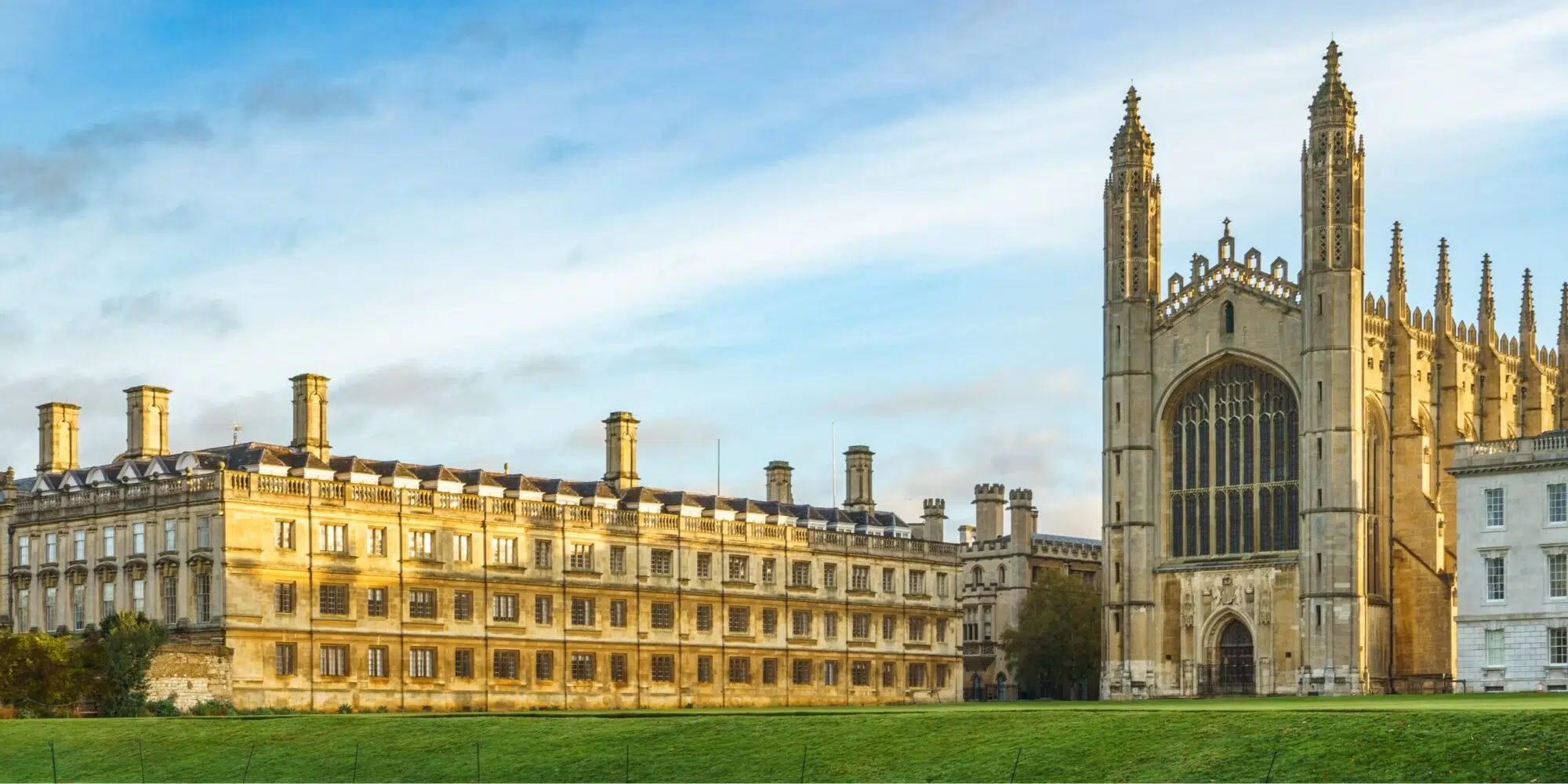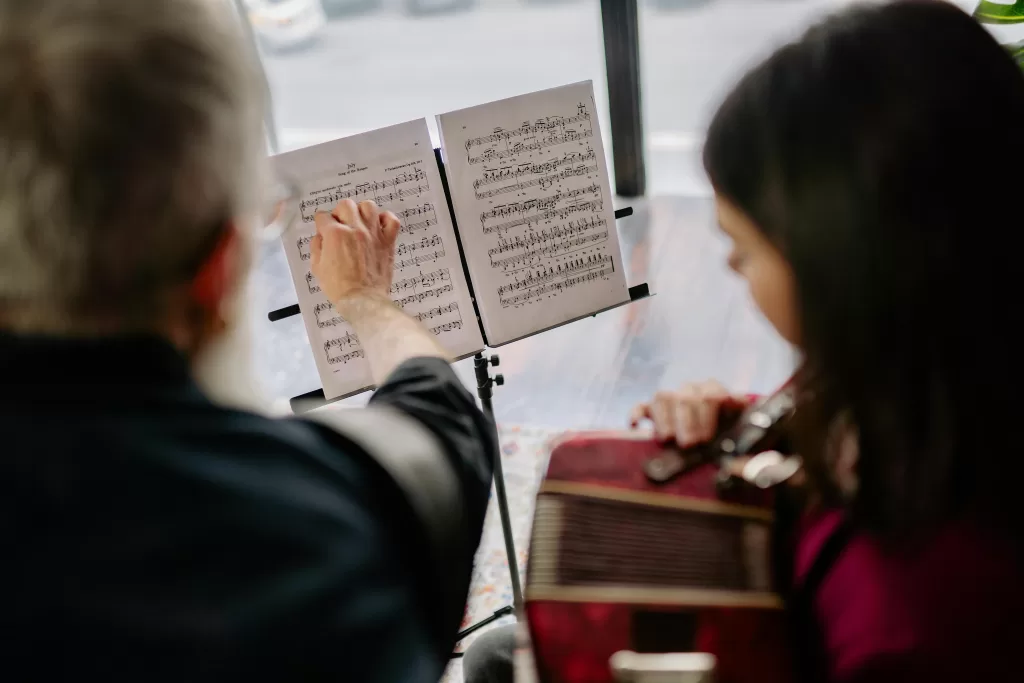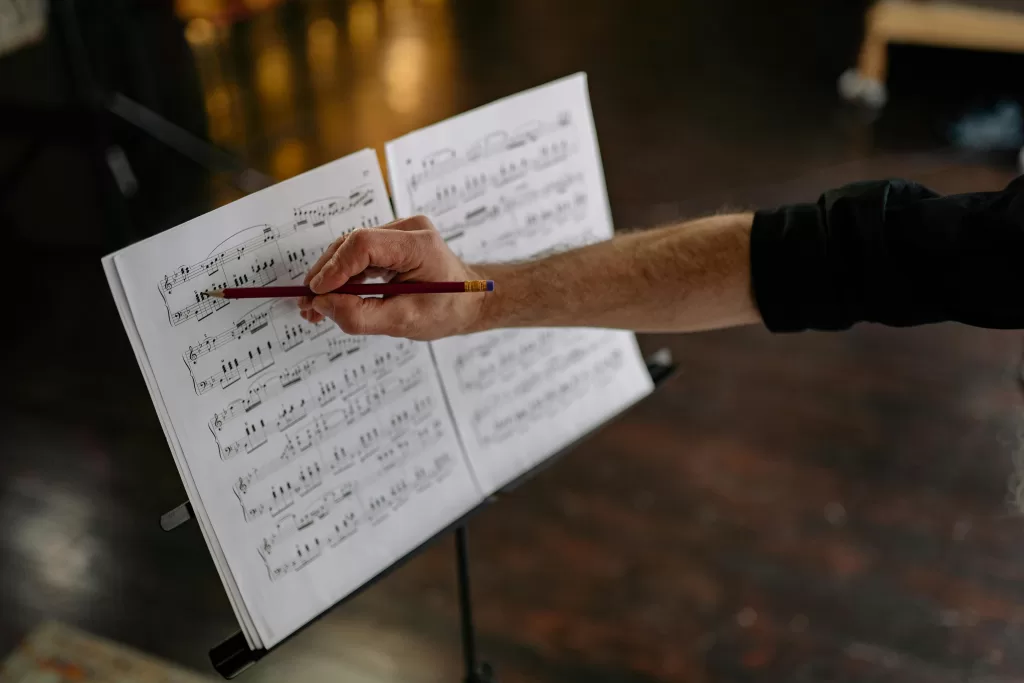Reading time: 7 minutes |
The IGCSE Music exam is an exciting yet challenging qualification. It explores your understanding of the music through three main areas: aural, performance, and composition. This requires much more than technical proficiency: it involves a broad-based approach in preparation. As an official examiner for Cambridge IGCSE Music myself (i.e., I mark student papers!), I will outline the essential strategies to help you navigate the exam with confidence.

What is the IGCSE Music Exam?
The IGCSE Music course is an internationally recognised qualification taken by 14-16-year-old students. It offers a structured introduction into music and lays a very strong foundation for further studies, such as A-Levels or IB. Whether your goal is to pursue music professionally or explore your passion seriously, this qualification provides students with the essential skills they need in listening, performance, and composing.
Here are how the three components are weighted:
- Listening (40%): it tests your ability to analyse music, identify musical elements, and understand styles within historical and cultural contexts.
- Performing (30%): this involves solo and ensemble performances, in which your musical interpretation and technical execution are assessed.
- Composing (30%): this requires you to create original music through one self-directed brief and another responding to a set brief.
Each section builds both your practical skills and theoretical understanding, ensuring well-rounded musical development.
Understanding the Syllabus
I often start by going through the syllabus and marking schemes with my students. It outlines the topics, skills, and exam structure that you are expected to be working with. For IGCSE, with regard to listening, you will study musical traditions from Western classical music to world music genres. Particularly, you will need to demonstrate your ability to analyse different musical elements such as rhythm, melody, and harmony.
In the performance component, there is the opportunity to show strengths on your instrument, both as a soloist and as part of a group – if you have been playing an instrument since young age, this shouldn’t be a big problem (most of my students did quite well in this component and I did not have to worry too much). The composition component, on the other hand, requires more creativity as it tests your ability to develop musical ideas, as well as notating them accurately. Many students struggle in this component because, understandably, this is just something that they are less familiar with.
Prioritising Practice
Music is a craft that to be perfected through consistent, dedicated practice. For performance, set up a regular practice schedule to build technical fluency on your instrument or voice. Explore music from different genres—this will not only make practice more engaging but also broaden your repertoire and deepen your understanding of musical styles.
And with composition, practise writing motives and fragments (brief ideas) and develop those to create longer compositions. You will complete and submit your work written using notation software such as MuseScore, Sibelius or Dorico, but if you prefer to start work by hand, do make sure manuscript paper are readily accessible as inspirations strike. Some students also enjoy working with Digital Audio Workstations (DAWs) like Logic Pro. Whichever method you use, just make sure you have something to write down you ideas, as they are quite elusive most of the time.
Building a Strong Theoretical Foundation
The level of difficulty of IGCSE Music falls between ABRSM Grades 5 and 6 Music Theory, although it covers a lot more breadth in terms of topics. A solid grounding in music theory is imperative in every component of the IGCSE Music exam. You should be comfortable with key concepts such as scales, intervals, chords, and harmonic progressions. Beyond theory, devote time to ear training: practice identifying intervals, rhythms, and cadences by ear (try ABRSM’s aural trainer apps). This will refine your listening skills and allow you intuitively to be more relaxed both during the listening exam and when you create your own pieces.
Also try integrating theory into performance sessions: for example, listen to the harmonic structure of the pieces you perform, build a deeper understanding of them, and establish a good analytical habit useful in the listening exam.
Developing Active Listening Skills
To do well in this section, develop the practice of becoming an active listener. Listen not only to a wide range of different types of music-from Baroque to jazz, from diverse world music traditions to that of contemporary electronic music-but also focus as you listen on the variety of musical elements used to create rhythm, melody, dynamics, and structure.
Active listening involves an intellectual component, too. Sometimes you might ask yourself:
- How do the different instruments interact?
- What mood or atmosphere does the piece create?
- How does the composer use dynamics and tempo changes to shape the piece?
The more you practise listening in this way, the better prepared you’ll be to respond analytically during the exam.
Seeking Feedback and Criticism
One of the best ways to improve is through feedback, which should be ongoing. Let your music teacher or some other trusted mentor have a say that will whet your performance and composition skills. Constructive criticism should not discourage you; it is all part of learning. Welcome each piece of feedback for an opportunity to grow.
Also, recording yourself during practice sessions allows you to listen critically to your own work. Listen back to these recordings with an analytical ear: Are you maintaining a steady tempo? Is the phrasing clear? Did the dynamics align with your interpretation?
Time Management and Staying Organised
A well-organised study schedule is crucial for balancing the demands of the IGCSE Music exam. Break down your preparation into manageable goals for each section:
- Daily practice for performance skills
- Weekly listening sessions for ear training
- Composing in stages, starting with initial sketches and refining them over time
Set realistic deadlines to ensure you’re making steady progress. Practising under timed conditions—such as running through your performance pieces or simulating the listening exam—will also help you build confidence and manage time effectively.
Managing Exam Stress and Staying Motivated
It’s normal to feel anxious as the exam date approaches, but maintaining a positive mindset is key. Take care of your mental well-being by incorporating relaxation techniques into your routine, such as deep breathing exercises or mindfulness practices. Balance your preparation with leisure activities to avoid burnout.
Remember that music is ultimately about expression and joy. Try to enjoy the learning process rather than getting lost in the pressure of exams. Reconnect with your passion for music by playing pieces you love or exploring new genres for inspiration.
Bonus Tips for Success
- Explore a Range of Genres: Experiment with unfamiliar musical styles to broaden your understanding and appreciation.
- Use Technology Wisely: Utilise online resources, apps, and notation software to aid your learning and productivity.
- Collaborate with Peers: Study groups or collaborations can spark creativity and help you stay motivated.
- Practise in Exam Conditions: Familiarise yourself with exam settings by practising under timed conditions.
- Stay Informed: Keep up with developments in the music world to gain fresh perspectives on your studies.
Final Thoughts
Mastering the IGCSE Music exam requires a blend of discipline, passion, and effective preparation. With a strategic approach—prioritising practice, building a solid theoretical foundation, actively listening, and seeking feedback—you’ll be well-prepared to tackle each component of the exam. Stay organised, keep a positive mindset, and enjoy the musical journey. Success lies not only in passing the exam but also in becoming a more well-rounded and expressive musician along the way.
Following these steps and embracing the learning process, you’ll be prepared to confidently execute the IGCSE Music examination with competence and desired results. Should you require additional help, I can offer tailored IGCSE Music lessons that can take care of all areas: refinement in compositions, deep theoretical insight-whatever the student may want or need to get full marks and beyond in this exam and subsequent exams. Feel free to get in touch at any time.


